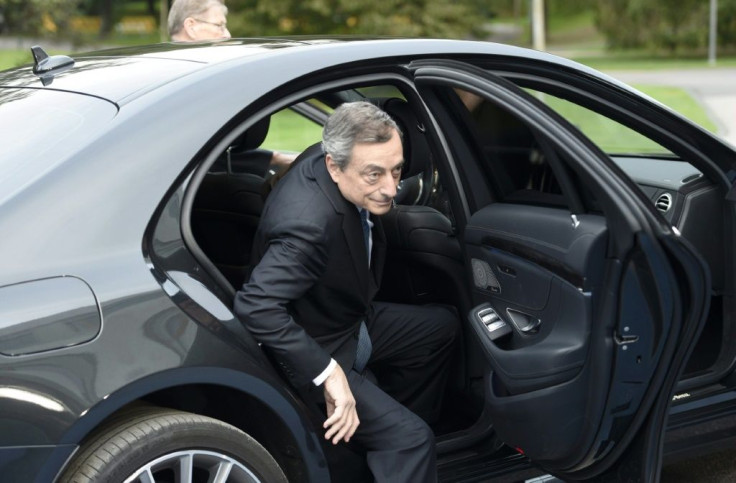Dissent At The European Central Bank? Minutes Indicate Split On ECB Stimulus Package

Minutes from the European Central Bank’s last meeting indicate deep divisions regarding the institution’s latest monetary stimulus package with officials disagreeing over key elements of the policy.
The minutes of the Sept. 11-12 meeting, released Thursday, show though officials agreed some form of stimulus was necessary, the decision to restart bond purchases – quantitative easing -- was opposed by at least seven top ECB officials as well as an internal committee that evaluates monetary policy. Sabine Lautenschlager, the top Germany official at the central bank who was among those opposing the decision, announced she would resign two years early.
In addition to the 20-billion euro ($21.9 billion) bond-buying package, the ECB lowered interest rates 10 basis points to a negative 0.5% to cushion the economy against a global slowdown.
During their discussion, members of the 25-member Governing Council disagreed about the severity of the slowdown.
“It was argued that the current slowdown in the euro area was the consequence of asymmetric shocks related to the external environment or to domestic factors, whose impact was largely concentrated in two of the largest euro area countries, primarily owing to weakness in the manufacturing sector. Reference was also made to the possibility of upside, as well as downside, risks; for example, if the ongoing trade tensions were to be resolved more quickly than expected,” the minutes read.
The minutes added: “A number of considerations were also advanced to suggest that the revised growth outlook might be too optimistic. The argument was made that the export weakness could over time be expected to spill over to domestic demand and to the services sector of the economy, and there were already some indications of the slowdown in exports affecting labor market developments.”
The stimulus package came in the final days of President Mario Draghi’s tenure, and successor Christine Lagarde has indicated she would support the policy.
Former ECB Chief Economist Peter Praet urged calm in the wake of a memo criticizing the ECB’s effort to stimulate inflation, which remains below the 2% annual target.
“I can understand the frustration, but people should keep quiet, be calm,” Praet told Bloomberg. “This sort of noise at the end of the mandate is not helpful.”
The ECB ended its last round of quantitative easing in December. Members of the ECB rate setting committee argued it was too soon to restart the program, which they view as a last resort and no longer effective since bond rates currently are low. The bond-buying program also is facing legal challenges in Germany.
ECB policy maker Olli Rehn told Bloomberg TV, however, the rift over quantitative easing was exaggerated.
“I found nothing extraordinary in this sequence of events and the letter of the Monetary Policy Committee,” he said.
"It is not the first time in ECB history that there have been dissenting voices in the Governing Council, but they have rarely been as loud and persistent as they are now," Carsten Brzeski, chief economist for Germany at ING, told the Associated Press.
© Copyright IBTimes 2025. All rights reserved.






















